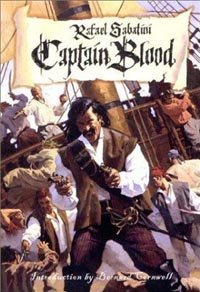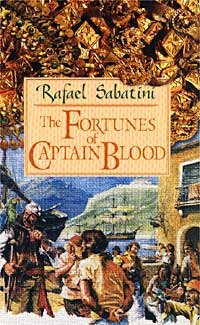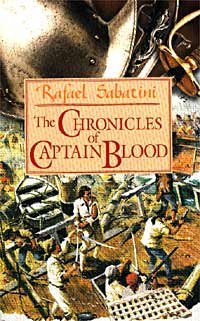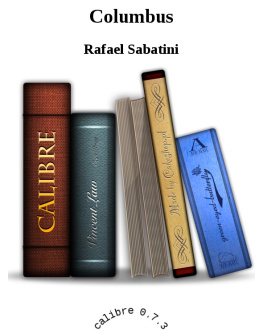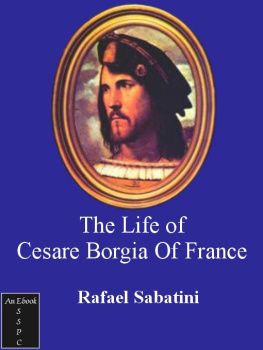Rafael Sabatini - The Lion's Skin
Here you can read online Rafael Sabatini - The Lion's Skin full text of the book (entire story) in english for free. Download pdf and epub, get meaning, cover and reviews about this ebook. genre: Adventure. Description of the work, (preface) as well as reviews are available. Best literature library LitArk.com created for fans of good reading and offers a wide selection of genres:
Romance novel
Science fiction
Adventure
Detective
Science
History
Home and family
Prose
Art
Politics
Computer
Non-fiction
Religion
Business
Children
Humor
Choose a favorite category and find really read worthwhile books. Enjoy immersion in the world of imagination, feel the emotions of the characters or learn something new for yourself, make an fascinating discovery.

- Book:The Lion's Skin
- Author:
- Genre:
- Rating:3 / 5
- Favourites:Add to favourites
- Your mark:
- 60
- 1
- 2
- 3
- 4
- 5
The Lion's Skin: summary, description and annotation
We offer to read an annotation, description, summary or preface (depends on what the author of the book "The Lion's Skin" wrote himself). If you haven't found the necessary information about the book — write in the comments, we will try to find it.
The Lion's Skin — read online for free the complete book (whole text) full work
Below is the text of the book, divided by pages. System saving the place of the last page read, allows you to conveniently read the book "The Lion's Skin" online for free, without having to search again every time where you left off. Put a bookmark, and you can go to the page where you finished reading at any time.
Font size:
Interval:
Bookmark:
THE LION'S SKIN
By Rafael Sabatini
CHAPTER I. THE FANATIC
Mr. Caryll, lately from Rome, stood by the window, looking out over the rainswept, steaming quays to Notre Dame on the island yonder. Overhead rolled and crackled the artillery of an April thunderstorm, and Mr. Caryll, looking out upon Paris in her shroud of rain, under her pall of thundercloud, felt himself at harmony with Nature. Over his heart, too, the gloom of storm was lowering, just as in his heart it was still little more than April time.
Behind him, in that chamber furnished in dark oak and leather of a reign or two ago, sat Sir Richard Everard at a vast writing-table all a-litter with books and papers; and Sir Richard watched his adoptive son with fierce, melancholy eyes, watched him until he grew impatient of this pause.
"Well?" demanded the old baronet harshly. "Will you undertake it, Justin, now that the chance has come?" And he added: "You'll never hesitate if you are the man I have sought to make you."
Mr. Caryll turned slowly. "It is because I am the man that youthat God and youhave made me that I do hesitate."
His voice was quiet and pleasantly modulated, and he spoke English with the faintest slurperceptible, perhaps, only to the keenest earof a French accent. To ears less keen it would merely seem that he articulated with a precision so singular as to verge on pedantry.
The light falling full upon his profile revealed the rather singular countenance that was his own. It was not in any remarkable beauty that its distinction lay, for by the canons of beauty that prevail it was not beautiful. The features were irregular and inclined to harshness, the nose was too abruptly arched, the chin too long and square, the complexion too pallid. Yet a certain dignity haunted that youthful face, of such a quality as to stamp it upon the memory of the merest passer-by. The mouth was difficult to read and full of contradictions; the lips were full and red, and you would declare them the lips of a sensualist but for the line of stern, almost grim, determination in which they met; and yet, somewhere behind that grimness, there appeared to lurk a haunting whimsicality; a smile seemed ever to impend, but whether sweet or bitter none could have told until it broke. The eyes were as remarkable; wide-set and slow-moving, as becomes the eyes of an observant man, they were of an almost greenish color, and so level in their ordinary glance as to seem imbued with an uncanny penetration. His hairhe dared to wear his own, and clubbed it in a broad ribbon of watered silkwas almost of the hue of bronze, with here and there a glint of gold, and as luxuriant as any wig.
For the rest, he was scarcely above the middle height, of an almost frail but very graceful slenderness, and very graceful, too, in all his movements. In dress he was supremely elegant, with the elegance of France, that in England would be accounted foppishness. He wore a suit of dark blue cloth, with white satin linings that were revealed when he moved; it was heavily laced with gold, and a ramiform pattern broidered in gold thread ran up the sides of his silk stockings of a paler blue. Jewels gleamed in the Brussels at his throat, and there were diamond buckles on his lacquered, red-heeled shoes.
Sir Richard considered him with anxiety and some chagrin. "Justin!" he cried, a world of reproach in his voice. "What can you need to ponder?"
"Whatever it may be," said Mr. Caryll, "it will be better that I ponder it now than after I have pledged myself."
"But what is it? What?" demanded the baronet.
"I am marvelling, for one thing, that you should have waited thirty years."
Sir Richard's fingers stirred the papers before him in an idle, absent manner. Into his brooding eyes there leapt the glitter to be seen in the eyes of the fevered of body or of mind.
"Vengeance," said he slowly, "is a dish best relished when 'tis eaten cold." He paused an instant; then continued: "I might have crossed to England at the time, and slain him. Should that have satisfied me? What is death but peace and rest?"
"There is a hell, we are told," Mr. Caryll reminded him.
"Ay," was the answer, "we are told. But I dursn't risk its being false where Ostermore is concerned. So I preferred to wait until I could brew him such a cup of bitterness as no man ever drank ere he was glad to die." In a quieter, retrospective voice he continued: "Had we prevailed in the '15, I might have found a way to punish him that had been worthy of the crime that calls for it. We did not prevail. Moreover, I was taken, and transported.
"What think you, Justin, gave me courage to endure the rigors of the plantations, cunning and energy to escape after five such years of it as had assuredly killed a stronger man less strong of purpose? What but the task that was awaiting me? It imported that I should live and be free to call a reckoning in full with my Lord Ostermore before I go to my own account.
"Opportunity has gone lame upon this journey. But it has arrived at last. Unless" He paused, his voice sank from the high note of exaltation to which it had soared; it became charged with dread, as did the fierce eyes with which he raked his companion's face. "Unless you prove false to the duty that awaits you. And that I'll not believe! You are your mother's son, Justin."
"And my father's, too," answered Justin in a thick voice; "and the Earl of Ostermore is that same father."
"The more sweetly shall your mother be avenged," cried the other, and again his eyes blazed with that unhealthy, fanatical light. "What fitter than the hand of that poor lady's son to pull your father down in ruins?" He laughed short and fiercely. "It seldom chances in this world that justice is done so nicely."
"You hate him very deeply," said Mr. Caryll pensively, and the look in his eyes betrayed the trend of his thoughts; they were of pitybut of pity at the futility of such strong emotions.
"As deeply as I loved your mother, Justin." The sharp, rugged features of that seared old face seemed of a sudden transfigured and softened. The wild eyes lost some of their glitter in a look of wistfulness, as he pondered a moment the one sweet memory in a wasted life, a life wrecked over thirty years agowrecked wantonly by that same Ostermore of whom they spoke, who had been his friend.
A groan broke from his lips. He took his head in his hands, and, elbows on the table, he sat very still a moment, reviewing as in a flash the events of thirty and more years ago, when he and Viscount Rotherbyas Ostermore was thenhad been young men at the St. Germain's Court of James II.
It was on an excursion into Normandy that they had met Mademoiselle de Maligny, the daughter of an impoverished gentleman of the chetive noblesse of that province. Both had loved her. She had preferredas women willthe outward handsomeness of Viscount Rotherby to the sounder heart and brain that were Dick Everard's. As bold and dominant as any ruffler of them all where men and perils were concerned, young Everard was timid, bashful and without assertiveness with women. He had withdrawn from the contest ere it was well lost, leaving an easy victory to his friend.
And how had that friend used it? Most foully, as you shall learn.
Leaving Rotherby in Normandy, Everard had returned to Paris. The affairs of his king gave him cause to cross at once to Ireland. For three years he abode there, working secretly in his master's interest, to little purpose be it confessed. At the end of that time he returned to Paris. Rotherby was gone. It appeared that his father, Lord Ostermore, had prevailed upon Bentinck to use his influence with William on the errant youth's behalf. Rotherby had been pardoned his loyalty to the fallen dynasty. A deserter in every sense, he had abandoned the fortunes of King Jameswhich in Everard's eyes was bad enoughand he had abandoned the sweet lady he had fetched out of Normandy six months before his going, of whom it seemed that in his lordly way he was grown tired.
Font size:
Interval:
Bookmark:
Similar books «The Lion's Skin»
Look at similar books to The Lion's Skin. We have selected literature similar in name and meaning in the hope of providing readers with more options to find new, interesting, not yet read works.
Discussion, reviews of the book The Lion's Skin and just readers' own opinions. Leave your comments, write what you think about the work, its meaning or the main characters. Specify what exactly you liked and what you didn't like, and why you think so.

